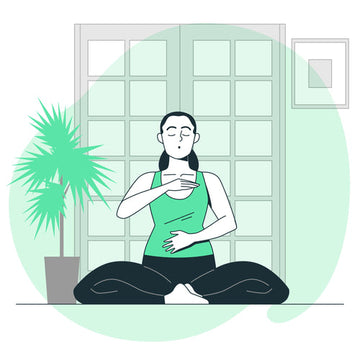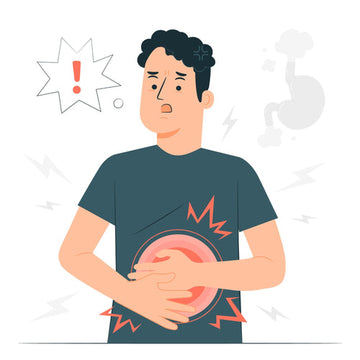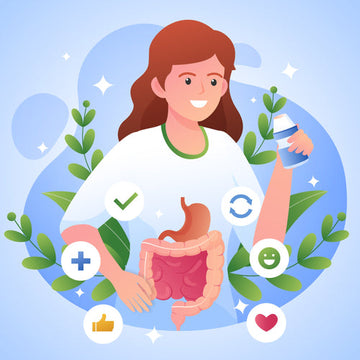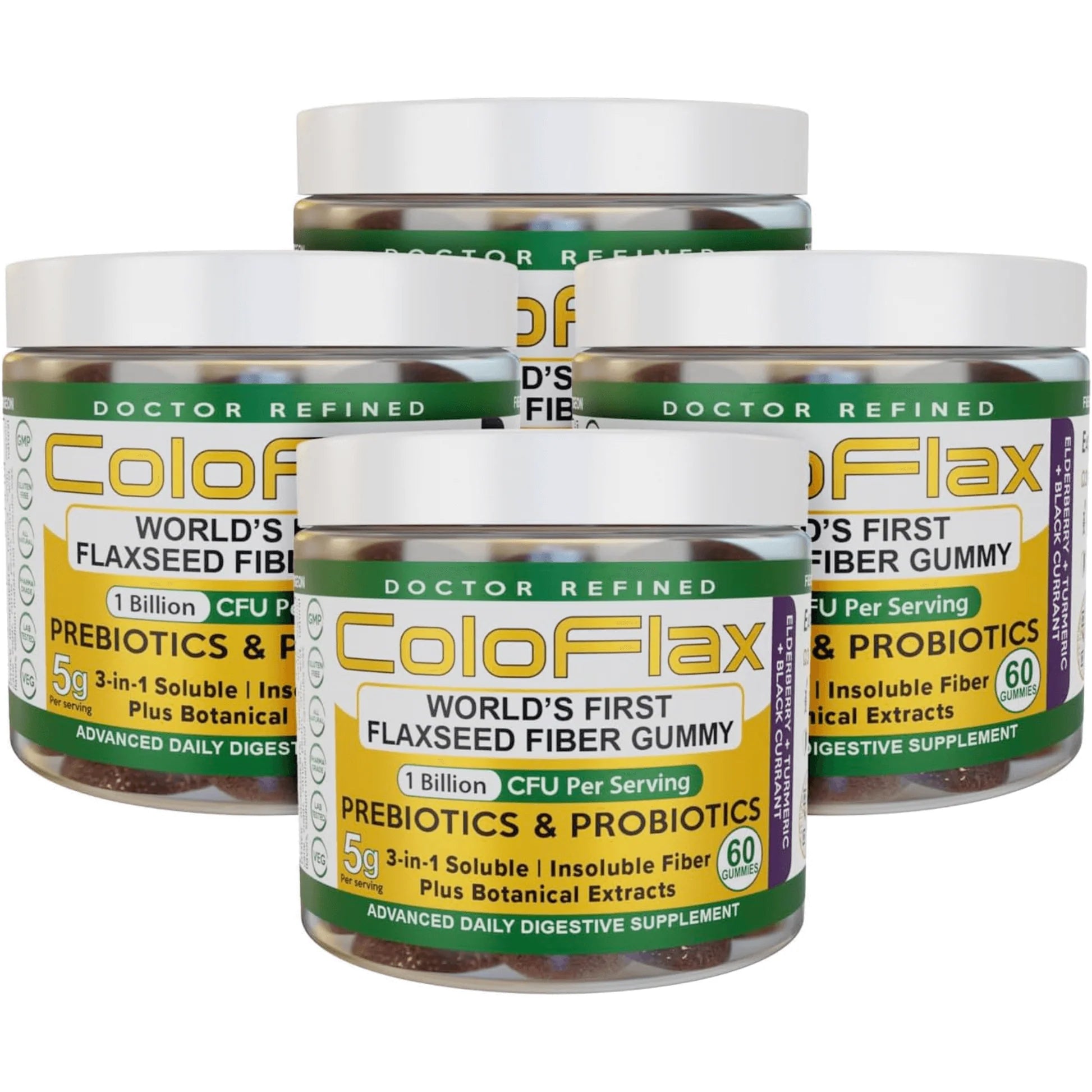Constipation is a common complaint that most people have experienced at some point or another. For many, it’s transient; they have a few difficult days or weeks and then everything gets back to normal. For others, it’s much more serious and impacts their quality of life.
But what are the most common causes of constipation and how can you treat them?
What is Constipation?
We tend to think of constipation as not experiencing a regular and expected bowel movement. But the medical definition is a little more specific than that:
- Experiencing fewer than 3 bowel movements a week
- Passing dry and hard stools
- A constant feeling of fullness that doesn’t disappear with a bowel movement
- Straining heavily during bowel movements
It’s a symptom, more than a disease, and it’s closely linked to lifestyle factors. It can also be an underlying factor in a number of serious health conditions, including intestinal obstruction, diabetes, Parkinson’s disease, and irritable bowel syndrome (IBS).
If you experience any of the following symptoms along with constipation, you should seek medical advice as soon as possible:
- Persistent abdominal pain and/or lower back pain
- Unexplained weight loss
- Blood in the stool
- Vomiting and constant fullness
What are the Most Common Causes of Constipation?
Everyone has their own unique bowel habits. Some people go several times a day, others go several times a week. There is no “normal” here, only what’s normal for you. If you experience a steady shift in your bowel habits and you find yourself having fewer bowel movements and/or passing dry and hard stools, take a look at the following list of causes and solutions:
Lack of Fiber
As much as 95% of Americans don’t eat enough fiber, and this problem has worsened as we have become more reliant on heavily processed food.(1)
Most dietary fiber comes from plant-based foods, including fruits, vegetables, nuts, seeds, and whole grains. If you’re subsisting entirely on a diet of TV dinners, fast food, and other energy-dense fare, you’re probably one of the 95%.
Not getting enough fiber could increase your risk of developing chronic diseases like cancer and heart disease. It also makes you more prone to constipation, as you need that fiber to form stools and move them through the bowel.
There are two types of fiber: soluble and insoluble.
Soluble fiber (found in beans, legumes, and oats ) is so named because it dissolves in water. This allows it to form a soft gel-like substance. As it moves through the gut, it binds with other substances and forms into fecal matter that can easily pass through and out of the gut.
Insoluble fiber (found in nuts and seeds) doesn’t dissolve in water. It passes through the digestive system intact and helps to form more of a complete stool.
A healthy diet is one that contains a mixture of both soluble and insoluble fiber, as well as a balance of fat, carbs, and protein.
If your diet is high in fat, processed food, and sugar, and has very little soluble or insoluble fiber, you may experience regular bouts of constipation.
No one is telling you that you can’t eat meat, cheese, and other foods seriously lacking in fiber. You can even enjoy candies, fast food, and chips on occasion, if that’s what you like.
It’s all about balance, as you need fiber to ease the passage of everything else you eat. So, swap candies for fruits, eat some vegetables with that meatloaf and swap regular fast food burgers and pizzas for dishes with fresh vegetables and beans, such as Greek and Mexican fare.
If you’re still struggling to meet your daily fiber requirements, pick up some COLOFLAX.
Dehydration
If you don’t drink enough water, your body will absorb more fluid from your food waste, making your stools hard and difficult to pass. After all, for soluble fiber to “gel” and move, it needs water, and that water needs to come from somewhere.
You may have been told to drink a specific number of glasses every day, but this doesn’t quite tell the whole story. The more that you exercise and sweat, the more water you need. If you live somewhere very hot, you’ll also need more water than someone who lives in a cold climate.
Furthermore, most of the water that you need comes from your diet, but that only applies if you eat a whole food diet rich in fruits and vegetables. These foodstuffs are mostly water, and if you eat enough of them, you’ll only need a couple of glasses to meet your daily requirements.
If, on the other hand, you’re eating lots of processed foods and meats, you’ll be consuming very little water.
It’s not just water, either. You can also drink tea and fruit juices to stay hydrated, but avoid anything that has too much sugar or caffeine, and stay away from alcohol, as it has the opposite effect.
Not Enough Exercise
Exercise reduces the time that it takes for food to move through the large intestine, which limits how much water the body can draw from the stool. The longer that the stool remains in your intestine, the harder it will become.
Regular exercise is also great for your muscles, heart, and even your mental health.
When we say “exercise”, we don’t mean that you need to go for a daily jog or join your local gym. Every little helps, and you’d be surprised at how helpful a little exercise can be.
The American Heart Association recommends 150 minutes of moderate exercise or 75 minutes of vigorous exercise a week. You can meet these targets by going for a 50-minute walk three times a week or opting for a daily walk of just over 20 minutes.(2)
And if you can’t leave the house, try stretching, Pilates, or yoga. Anytime you’re moving, you could be improving your cardiovascular and digestive help.
One of the reasons constipation is so common is that more people are getting little to no exercise. They drive to work, sit on an office chair, drive back home, and then plonk themselves in front of the TV.
If this sounds like your life, think about ways you can add more activity to your day and you may experience a massive improvement in your digestive habits.
Prescription Medication
Some prescription medications can cause constipation, including sedatives, hypnotics, and anti-depressants. Most of these side effects are minor and many of them are rare, which means only a small number of patients will experience them.
It’s a different story with opiates and opioids, though. These drugs are very effective at killing pain, but they can also make it difficult to go to the toilet. If you have been prescribed a course of opioid painkillers, including codeine, tramadol, morphine, oxycodone, and hydrocodone, you may experience constipation.
The extent to which you experience this issue will depend on your dose, physiology, and lifestyle. But you can remedy this issue by eating more fiber, drinking more water, and exercising—all of the solutions discussed on this list.
If that still doesn’t work and reducing your dose is not an option, consult with a healthcare provider. They may recommend a mild laxative, such as a stool softener.
Stress and Anxiety
Have you ever felt the need to urinate when you’re very anxious? Have you noticed that your usual morning bowel movements disappear when you’re worried?
On the flip side, you may have also noticed that you feel more sluggish, depressed, and even anxious when you are very bloated and constipated.
As strange as it sounds, your digestive system and mood are closely linked. If you are very stressed, anxious, or even angry, your bowel habits may change. If those feelings persist, you may suffer from constipation that disrupts your routine for several weeks.
It’s not just about stress and anxiety, either.
Changes in your general routine can also impact how frequently you go to the toilet.
If you’re used to waking up every day at 9 am, drinking a cup of coffee, going to the toilet, showering, and then leaving for work, your body will get into a routine. If you suddenly find yourself working nightshifts while living with your parents, that pattern will change.
Overuse or Misuse of Laxatives
Laxatives are designed for temporary use. Using them excessively could make your bowels “lazy”. Some laxatives can be used more frequently, but these come with their own risks, as misuse can be just as problematic.
There are 5 main categories of laxatives:
Stimulants
Stimulants force the colon into spasms, helping to push the stool through. These are some of the most commonly abused laxatives and they are also the most dangerous, as chronic use can lead to long-term constipation issues.
Osmotics
Osmotics include products like Milk of Magnesia. They work by drawing large amounts of water into the colon, helping to soften hard stools and encourage them out of the bowel. They can be very effective at treating chronic constipation.
When used to excess, the risk of side effects increases, including cramping and diarrhea. It could also mask the real cause of constipation.
Stool Softeners
Stool softeners, like osmotics, work by drawing water into the colon and softening the stools. Long-term use is not considered to be harmful, but these laxatives are not as effective as others.
Bulk-Forming Laxatives
Psyllium husk is the main ingredient in bulk-forming laxatives. It’s a powder that forms into clumps when mixed with water. It works by clumping in the gut and then pushing hard stools out as it moves through the colon. However, it’s only effective if consumed with plenty of water.
If you take large quantities of psyllium husk and drink very little water, it may form a blockage, causing constipation and potentially leading to an intestinal blockage.
Suppositories
Suppositories are inserted into the rectum to trigger a quick reaction that expels blocked feces. They are taken as needed and are rarely abused. They can be very effective if there is a blockage near the rectum but are next to useless if the issue is much deeper.
Summary: What Causes (and Cures) Constipation?
There are many causes of constipation, and if you can find the cause, it’ll lead you to the solution:
- Not enough fiber—eat more beans, vegetables, fruits, and other high-fiber foods.
- Not enough fluids—drink water, tea, and juice, and try to eat more whole foods.
- Limited activity—exercise more! Every little helps.
- Laxative use—although laxatives can help to cure constipation, they can also cause it.
- Prescription medications—a number of prescription medications can cause constipation.
If you have tried all of the above and the problem persists, or you experience any other symptoms, contact your doctor.






